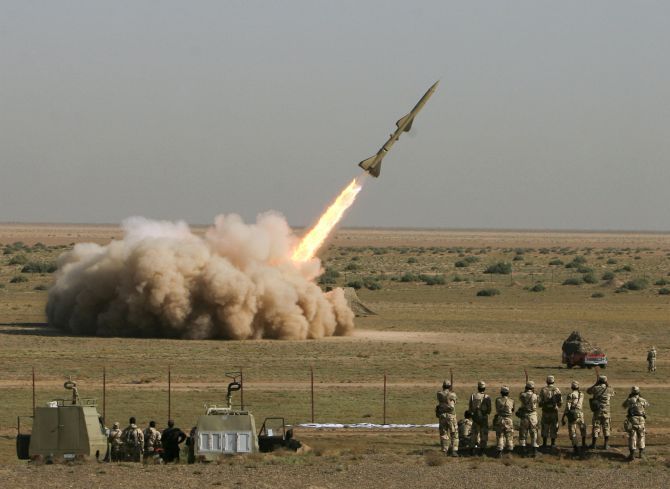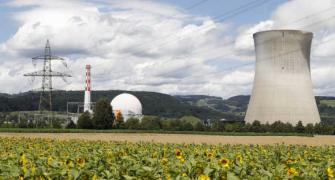
Study conducted by Delhi think tank finds that there is a need for a specialist security force and suggests India should be more proactive in publicising its nuclear achievements
With the spectre of nuclear terrorism growing, the international community is concerned about the security of India's nuclear facilities. The worry has grown since 2010, when radioactive Cobalt-60 surfaced in a New Delhi scrapyard, killing one person and hospitalising eight others.
Now, an important new academic study has found India's nuclear installations better protected than most western countries have believed. "Unlike other recent evaluations, we assess that India's nuclear security measures are comparable to best practices globally," says Rajeswari Pillai Rajagopalan, who authored the report, "Nuclear Security in India", released on Tuesday at a Delhi think tank, Observer Research Foundation.
The report rebuts the more negative conclusions of earlier international studies, such as that of the non-partisan Nuclear Threat Initiative, concluding that the NTI "did not examine Indian nuclear security in depth". In contrast, the ORF study included field trips to survey nuclear security in the UK, France and Japan.
The report recommends, "India needs to be more pro-active in publicising its achievements. The Indian reticence in this regard is particularly surprising considering India has a strong case to make."
This is good news for the government, which is campaigning for membership of the Nuclear Suppliers Group; as well as three other counter-proliferation regimes -- the Missile Technology Control Regime, Australia Group and the Wassenaar Arrangement.
The report finds that New Delhi's unwarranted secrecy about security structures and protocols has created a perception of poor procedures and standards. "The assumption appears to have been that India was not transparent because its nuclear safety and security measures were below par, although that is far from true," it says.
Even so, the report recommends several changes, such as the establishment of a specialised security force to protect nuclear facilities.
"While the Central Industrial Security Force, which currently handles the task of securing nuclear facilities, has done a good job so far, its mandate is vast. With the Indian nuclear establishment set to expand, it might be preferable to have a separate force that only secures nuclear facilities," says the report.
Besides nuclear facilities, the CISF's 140,000 personnel are used for securing space establishments, airports, seaports, power plants, sensitive government buildings and even some heritage monuments.
The report also recommends a fully autonomous nuclear regulator. Currently, the Atomic Energy Regulatory Board, which oversees the functioning of nuclear establishments and facilities, operates under the Department of Atomic Energy. Since the AERB is required to oversee the DAE, this is widely perceived as a conflict of interest.
The report states: "There has to be clear separation of roles and functions between the nuclear establishment and its regulator to avoid even the appearance of a conflict of interest."
The report evaluates India's preparedness to counter three main forms of nuclear terrorism. First, and most unlikely, terrorists could mount a catastrophic attack with a full-scale nuclear weapon. Such nuclear devices are extremely hard to obtain and require expertise to operate, but cannot be ruled out until nuclear supermarkets -- like Pakistan's AQ Khan network -- are eliminated entirely.
Second, terrorists could sabotage a functioning nuclear establishment, such as a power plant, effectively transforming it into a slow-burning nuclear bomb.
Doing this from within would require sophisticated technological expertise, but a 9/11 style attack from the air remains feasible.
Third, and most feasible, is the explosion of a "dirty bomb" in a heavily populated environment. This is a relatively simple device in which explosives are packed with radioactive material.
With the explosion spreading hazardous radioactivity over a large area, time-consuming and expensive decontamination would be required, with the second-order impact of an attack on the economy and the psychological effect on the public. This danger demands that users such as hospitals and education institutions tightly safeguard radioactive material.










